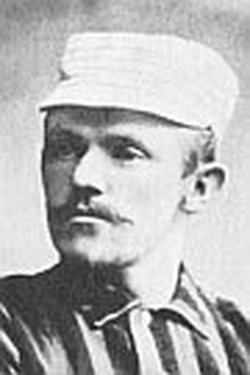
On June 17, 1880, Ward became the second pitcher in MLB history to throw a perfect game. Oddly enough, the first ever perfect game came just 5 days earlier by Lee Richmond for the Worchester Ruby Legs. One of the dominant pitchers of that time frame, he logged almost 600 innings in back to back seasons in 1879 and 1880. While serving as a pitcher, Ward managed to hit better than most, playing the OF on the days he was not pitching. Most teams of that time had their "backup" pitcher play in the OF and come in to switch with the pitcher if needed. The fact that he was a good hitter allowed for him to make the transition to a full time position player.
1884 was the year Ward started to play 2B. He played in more games (59) in the OF than he did at 2B (47). For the next five seasons, he was the starting SS for the New York Giants (though he played 7 games at 2B during the 1889 season). His first season as a full time position player was a little bit rough. He hit just .226, 0, 35 in 1885. He seemed to grow a little more comfortable the next season, hitting .273, 2, 81 following that up with an incredible .338, 1, 53 season that included 111 stolen bases. The next two seasons he was part of the Giants back to back World Series Championship victories over St Louis and Brooklyn.
In 1885, Ward teamed with Ned Hanlon to form the first ever baseball players union- The Brotherhood of Professional Baseball Players. As a result of that move, they were able to successfully challenge baseball's reserve clause, something that would not last for very long. The reserve clause in Major League Baseball would not be successfully challenged again until the year of 1975, when pitchers Andy Messersmith and Dave McNally pitched the past season without a contract. Because of that, the arbitrator ruled they could become free agents. Of course, Curt Flood had challenged the reserve clause in 1969 and Danny Gardella in 1947. Both were unsuccessful, though Gardella had dropped his lawsuit when he was allowed back into the Major Leagues, something he had been outlawed from because of his jump to the Mexican League.
For his career, Ward hit .275 with 2107 career hits, 860 RBI and an unofficial 540 stolen bases (SB became an official stat in 1886, 8 years after Ward had started playing. As a manager, he had a 412-320 record, a .563 winning percentage. Add in his 164 wins as a pitcher, that was one hell of a career. My question is... how do you quantify the accomplishments of Monte Ward, who by the way, was known by his birth name of John while he played and managed? His accomplishments are measured in more than just his hitting stats. Out of his 1872 career games, he played more than 200 games at four different positions- SS, 2B, P and RF. He was a two time World Series Champion in a time before the World Series era even started. And he played the role of player manager for full seasons at a time when the manager acted as more of an owner than somebody that just writes out the lineups.
Is it fair enough to compare Ward to the likes of Babe Ruth, Ty Cobb and Ted Williams? What about Christy Mathewson, Walter Johnson and Cy Young? What about his own contemporary Cap Anson? Lets look at Anson first. Cap Anson played 27 years in major league baseball, managing also in 21 of them. He won 5 Pennants, appearing in two World Series in 1885 and 1886, tying one and losing in the other. Anson was a more successful manager, but Ward would have had better numbers if he played closer to 27 seasons like Anson did. The fact that Ward pitched for 7 seasons needs to be mentioned. I cannot say Ward ranks higher than Anson, but also cannot say Anson ranks higher than Ward.
I have to rank the three pitchers ahead of Ward. Even though Ward pitched in a time where a pitcher threw almost 600 innings a season (Young's high was 453 in 1892, Mathewson's was just under 391 in 1908 and Johnson's was just under 372 in 1914), the fact that those three managed to continue to dominate on the mound as long as they did, gives the advantage to them. For the record, Ward had the higher winning percentage as a manager than Johnson did (.563-.550) and Mathewson had a sub .500 winning percentage as a manager. I cannot rank a converted position player ahead of three of the best to ever throw. They also never gave up pitching at any point of their careers.
The fact that Ruth also dominated as a pitcher washes out any advantage Ward may have over Ruth. The question I pose is how to rank Ward against the likes of Cobb and Williams? Cobb played from 1905-1928 and Williams played from 1939-1960. Cobb managed to a barely over .500 record as a player manager with the Tigers from 1921-1926. Williams had some bad teams with the Senators when he was their manager from 1969-1972. Cobb was the best hitter from the dead ball era. Williams was the best pure hitter the game has ever seen. Ward did everything from pitch to play the field to hit to manage to lead the formation of the players union to create his own league. Ward was certainly a pioneer.
Cobb and Williams were better hitters than John Montgomery Ward was. Ward's impact on major league baseball was much more impact full than either of the other two. While Ruth and the three pitchers rank ahead of Ward, I think Ward is right at the same level of Anson, Cobb and Williams. That makes his place higher than any other player to ever play this game.
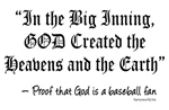
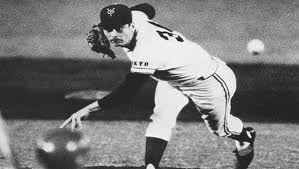
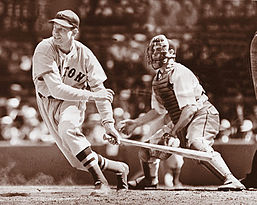
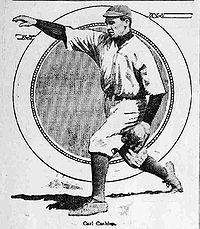
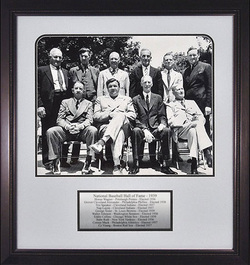



 RSS Feed
RSS Feed
